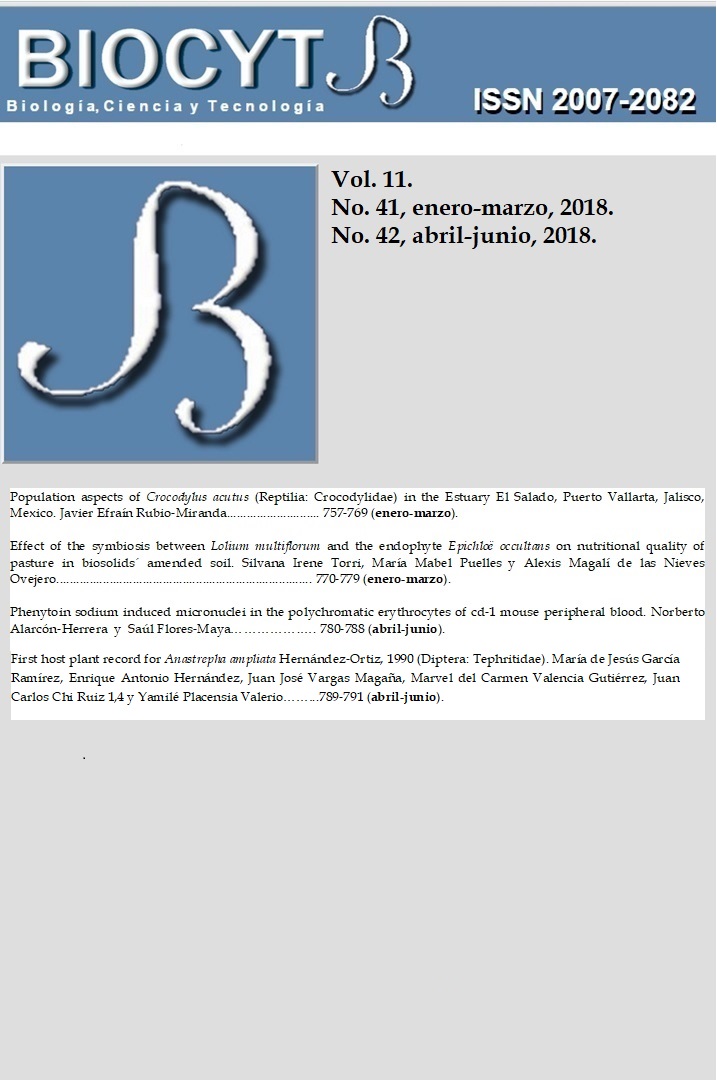PHENYTOIN SODIUM INDUCED MICRONUCLEI IN THE POLYCHROMATIC ERYTHROCYTES OF CD-1 MOUSE PERIPHERAL BLOOD
Contenido principal del artículo
Resumen
Seizures are one of the most common neural disorders, and may be sporadic or recurrent (epilepsy) crisis. In the case of people with epilepsy, these must be treated throughout their lives, being a major phenytoin prescription for seizure control medicines out. However, despite having several decades in the market there is very little information about their genotoxic effects. Therefore in this study to evaluate the ability of phenytoin to induce genotoxic damage for 30 days using the micronucleus test in mice Mus musculus CD-1 strain. It was determined that the three doses of phenytoin used (2.8, 4.2 and 6.64 mg/kg) induced clastogenicity in mouse chromosomes, that at higher doses the damage is greater. Furthermore, also inhibiting cytotoxic damage induced cell kinetics for doses of 4.2 and 6.64 mg/kg.
Detalles del artículo
Cómo citar
Alarcón-Herrera, N., & Flores-Maya, S. (2018). PHENYTOIN SODIUM INDUCED MICRONUCLEI IN THE POLYCHROMATIC ERYTHROCYTES OF CD-1 MOUSE PERIPHERAL BLOOD. BIOCYT Biología Ciencia Y Tecnología, 11(41-42). https://doi.org/10.22201/fesi.20072082.2018.11.64007
